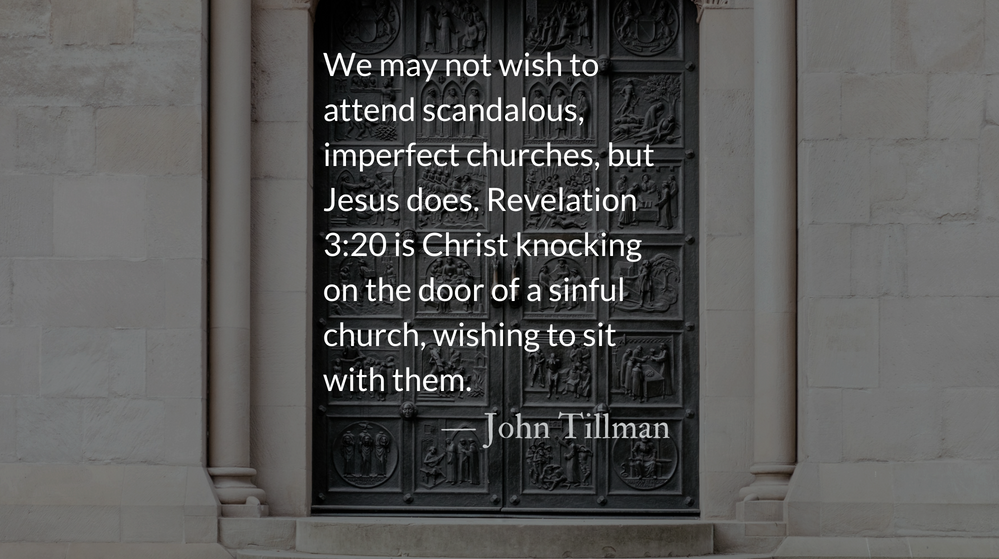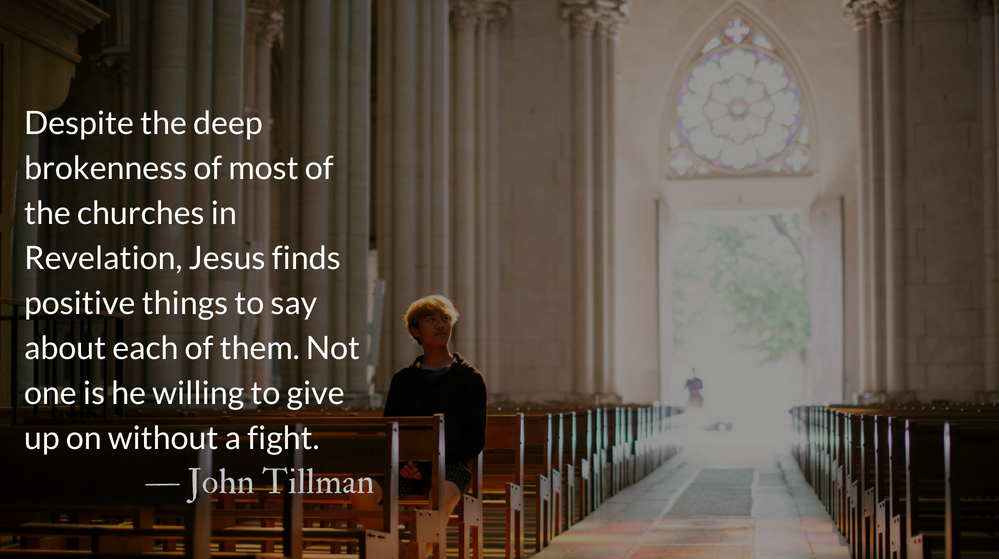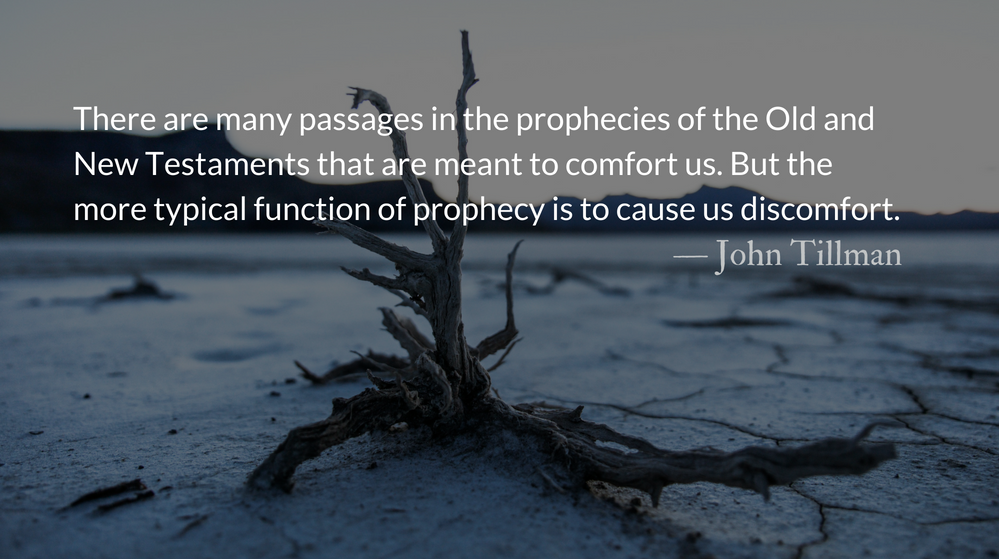Scripture: Revelation 3.19-20
Those whom I love I rebuke and discipline. So be earnest and repent. Here I am! I stand at the door and knock. If anyone hears my voice and opens the door, I will come in and eat with that person, and they with me.
Reflection: The Churches Christ Attends
By John Tillman
Recently a reader returning from a trip to Southeast Asia emailed me describing some of the amazingly humble leaders of the churches there.
These are men and women operating quietly under the threat of being disappeared by the government. They will never grace the stage of a pastor’s conference in the West. They will never promote a book on a talk show. They will never teach a church growth seminar at a conference. Yet they are leading megachurch sized ministries that are growing and thriving under true oppression.
I needed the encouragement because my mood was dark as I read about pastors (and prominent Christians) here in the West tripping over their own feet amidst scandals and petty arguments. We (I) need the humbling realization that the Western church is not the center of God’s universe, and like Elijah in the cave, we are not alone in serving God.
Frustrations with the church are nothing new and have been a chief reason given for those exiting the church.
But there are no safe spaces or perfect churches in the New Testament or on earth. Everywhere you go there is correction and conflict. Most of the New Testament is letters filled with corrective, confrontational language.
We may not wish to attend scandalous, imperfect churches, but Jesus does. Revelation 3:20 is often used as a scripture about individual salvation, but in context it is Christ knocking on the door of a sinful church, wishing to sit with them.
Christ longs to feed us from the tree of life, to heal blindness with salve, to clothe nakedness with mercy, to dress us in white, to give us a new name, and to seat us on his throne. These are not promises made to the “perfect” churches, but to the failures.
In Christ there is radical, loving confrontation and a passionate pursuit of reconciliation all wrapped up together. This is a mixture that our culture can’t stomach—we prefer excoriation to redemption.
No church is perfect or stands alone. Dysfunctional and broken churches are an opportunity for Christ to bring redemption, if we will but listen. Christ confronts and comforts in the same breath. If we cannot find it in our hearts to do so, we can find it in his.
Prayer: A Reading
Jesus came and stood among them. He said to them,… “Peace be with you. As the Father sent me, so am I sending you.” After this he breathed on them and said: “Receive the Holy Spirit. If you forgive anyone’s sins, they are forgiven; if you retain anyone’s sins, they are retained.” — John 20:19-23
– Prayer from The Divine Hours: Prayers for Springtime by Phyllis Tickle.
Full prayer available online and in print.
Today’s Readings
Isaiah 33 (Listen – 3:45)
Revelation 3 (Listen – 3:53)
This Weekend’s Readings
Isaiah 34 (Listen – 2:59) Revelation 4 (Listen – 2:09)
Isaiah 35 (Listen – 1:43) Revelation 5 (Listen – 2:39)











